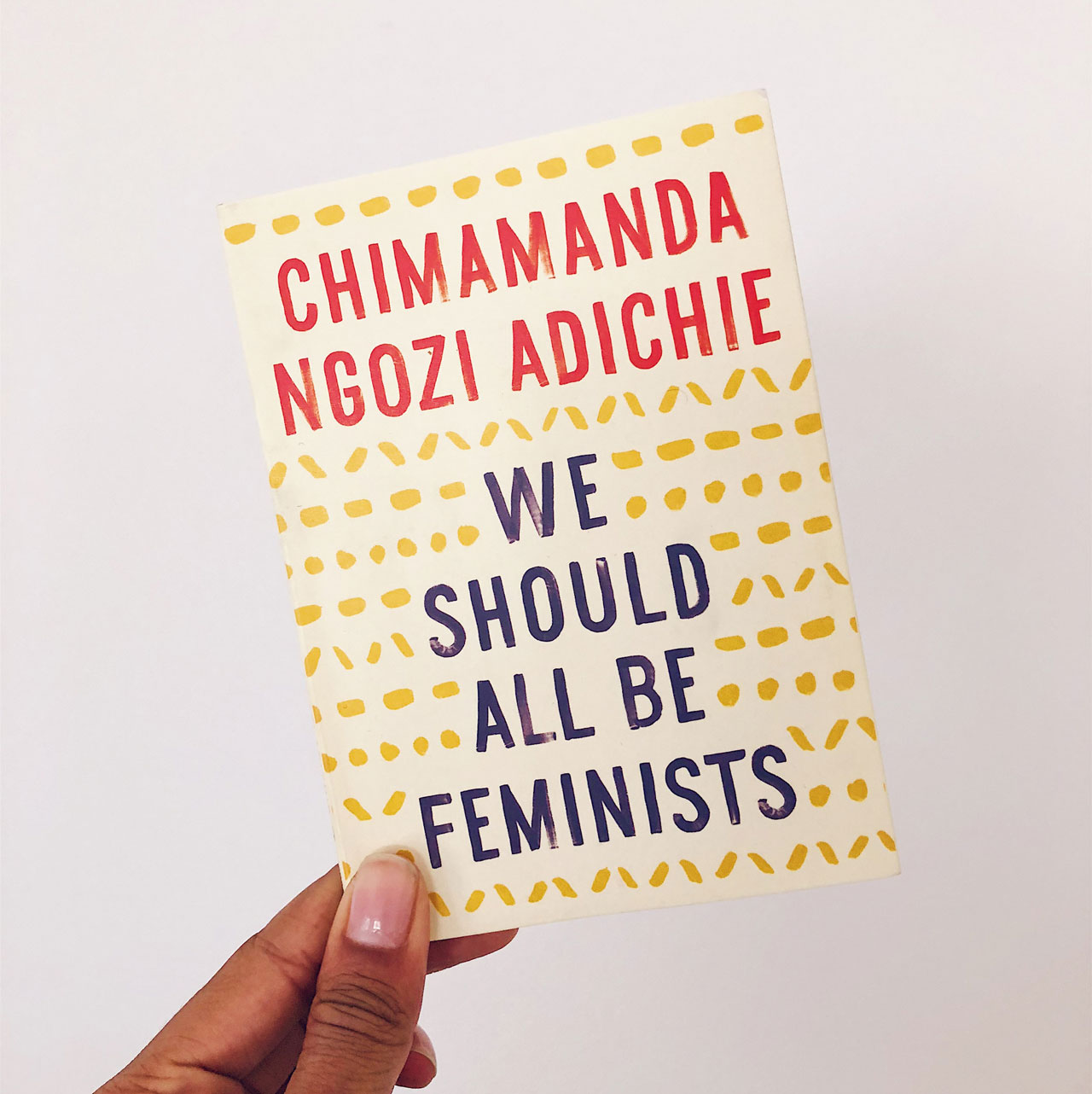Your cart is currently empty!

We Should All Be Feminists by Chimamanda Ngozi Adichie
I would definitely call myself a feminist. Especially when reading the definition given by Chimamanda Ngozi Adichie. For the most part, We Should All Be Feminists, is an anecdotal story of the author and her time in Lagos, Nigeria. It was an adaptation of her popular TEDx talk that goes by the same name. In the book, Chimamanda argues that feminist is not the dirty word it’s been made out to be. This all stems from a story that she tells between her childhood friend, Okoloma and herself. In a heated argument, Okoloma called her a feminist as if it were a bad word. At the time, Chimamanda didn’t know what the word meant, but knew that her friend was using it to criticize her.
Her Story
As an older woman, Chimamanda wrote her first novel, Purple Hibiscus. She tells the story of a woman in an abusive relationship with a prominent man. So much that she poisons him to escape his abuse. When the book was written, Nigerian men around her was saying that she shouldn’t call herself a feminist. Not only were these men strangers, but they had their own belief that women who were called feminist were always unhappy and hated men. The unnecessary comments by men she didn’t know made her embrace the term. She decided to be a feminist and defy the stereotypes that come with it.
Chimamanda highlights the inequalities of gender with just her own personal experience. She tells a story of her childhood in which her teach says that whoever gets the highest score on a test gets to be class monitor. The teacher didn’t feel the need to say that this honor was only awarded to male students. Chimamanda got the highest score, but the title was given to the second highest score because she was a girl. As she grows up, she continues to feel the weight of inequality. Another story she tells is when she tipped valet and the valet person thanked the male friend that she was with, assuming that any money that she had was his.
What is Feminism, Really?
Chimamanda tells her stories of living in Nigeria, but Nigeria isn’t the only place that faces sexism. It’s pretty universal. Her anecdotes only serve as small examples of a much bigger problem. She not only makes the case that sexism is detrimental to women by showing her experiences. She also makes the case that sexism is detrimental to men. For example, men feel like they have to be the bread winner in any relationship with women. Not paying for a date is a hit to one’s masculinity. By the end of the book, Chimamanda makes the persuasion for us to all be feminists. She wants us to be aware of how sexism has diminished men’s needs to be vulnerable and paints women as weak. By the end of the book, Chimamanda has a new definition for us to think about. Feminism is much less about woman advocacy. It’s about recognizing that something is wrong with our idea of gender, and something needs to be done about it.
